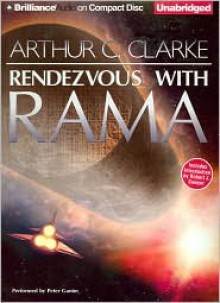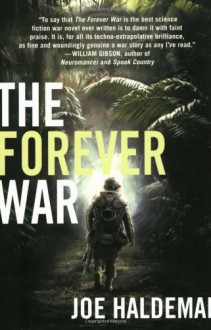

Imagine a mixture of Han Christian Andersen's classic fairy tale, Celtic/Welsh mythology (which I talked about here), the changing and turning of the year; now add in the science fiction and space opera sensibilities of Frank Herbert's Dune, with a dash of Star Wars, and finish it off with Joan D. Vinge's own peculiar and particularly strong world building skills, and one might suspect it of being an uneasy stew, too busy, or too chaotic, but Vinge obviously had a very clear vision, creative and focused. And the result is something of a forgotten classic about romance, betrayal, environmentalism, classicism and feminism.
The thing I was most impressed with was how none of this felt forced. The story was allowed to unfurl naturally, and the characters take center stage--that the majority of the characters are female, drive by different desires, different values and different wants and needs in their lives, and it shockingly doesn't read as an idea, but as an organic concept; these were the characters I truly believed that Vinge was interested in, whose stories she wanted to tell. And I came to adore reading about each one of them, even if the character him-or-herself turned out to be dislikable, complicated, or downright mean. It takes a deft touch with character to make a villain interesting without asking for sympathy, to simply show his or her life in a way that you can read it, and understand it, is a rare gift, and Vinge shows she has it in spades.
As with Andersen's fairy tale, the story starts with a boy and a girl. Well, okay, technically, the story starts twenty years earlier at festival, where the Queen of the Winter people implants clones into unconscious women to make certain her legacy will continue to dominate. The only one who truly comes to fruition is Moon, believed to be "merrybegotten" at the festival, along with her cousin Sparks, who is obsessed with his offworlder father. And the two grow up in love, devoted to one another, until the day when Moon is chosen as a sibyl, the prophets of the Summer people, who enter a state called Transfer, and spout knowledge like, well, they're accessing a computer database, because that is exactly what they're doing. Sparks, feeling left behind and betrayed that Moon has gone where he can't, leaves for the big city to find his future.
In the city, we're introduced to Jerusha, a Blue (police officer) for the Hegemonic police force, and her faithful partner BZ (who will gain importance in the last half of the story); we meet Tor, who scams Sparks and steals his things, and later becomes the target of his revenge, and her robot Pollux, who feigns ignorance but is really in love with his mistress; we meet Fate Ravenglass, the blind artisan hired to make the Winter and Summer Queen masks for the upcoming festival; we get to know Arienrhod, the Snow Queen, and her "Starbuck" (a ceremonial position as consort to the queen), Herne. Obsessed with Moon, Arienrhod takes Sparks in, and later ensures that he becomes the new Starbuck, after taking him into her bed.
And that's only really touching on the first third of the book. I'm not going to lie, it's dense, but not in that unreadable way; it's well written, the prose isn't florid, but it is lovely, and in some places so matter of fact, it made me blurt out laughing (such as when Jerusha used the expression 'crapped out.') There's a toughness and a poetry to it, balanced perfectly by Vinge. Unlike Frank Herbert, Vinge doesn't throw things at you and expect you to figure out what the heck he's talking about; some may think she over explains, but I found Vinge to be very clear, very precise. And wildly imaginative, with a firm grasp of the world she's created. I also thought it was bolstered a little by Tron syndrome: Ideas and concepts that would have been completely bizarre and foreign back in 1980 when the book was published are now fairly common in sci-fi, like wormhole travel, computer databases, genetic manipulation. This made it an easier read, and more grounded in scientific theory as we know it to be today, as opposed to the more fantastical aspect of, say, Dune.
We also get a healthy dose of social commentary concerning classicism and environmentalism, though not heavy-handed; it doesn't exactly sneak up on you, but it's such an integral part of the story, you don't feel preached at. (I do have to laugh at the reviewers online who think that the sexism a woman police officer has to face, and the ensuing self-doubt that she would be wracked with due to what she's been taught in her culture, in her personal experience, is an "outdated idea.") Each world and their politics, as well as their relation to Tiamat, the planet of the Summers and the Winters, are so finely drawn, the world comes alive, and that, my friends, is fantastic world building (which, contrary to popular belief, doesn't just mean, 'I like this world'; it means that this world has been thought out to every last detail, and that it makes sense, it feels as if the author has put thought into everything, from everyday life, to religion and politics.)
This is the story of a hero's journey. More than one actually, and most of them women (the men are essentially relegated to the roles that women typically are in these stories, which means that some have really good parts, but they're not the main focus.) If I had one complaint about the book, it would be that Moon really doesn't come into her own until about halfway through the novel, but when she does, she hits the ground running. The romance felt slightly melodramatic in places (with Sparks; with BZ it felt very fresh, and surprising), but the book constantly surprised me in its perception.
One thing that's always bothered me about Andersen's original tale is how faithful, how driven, Gerda remains when Kai treats her, well, like absolute crap. Here, Moon is so focused on Sparks because she needs meaning to all that she's done, all that she's lost in her struggle to get where she is by the end of the book; at one point, she even thinks to herself that it has to work out, or else it all meant nothing. And you get the creeping feeling that it's not going to work out, in the long term: Sparks and Moon are opposites, whereas Sparks absorbs the negativity of those around him, he gets beaten down by it, jaded, cynical, while Moon affects those she means with her positivity and drive. They're too much the extreme played against one another, while Moon and BZ are the pair who compliment one another. She only allows herself once to admit to herself and to BZ that she loves him, and then he has to leave the planet. I know from the summaries of the other books in the series that this is, in fact, only the beginning of their epic romance. and I can't wait to read more!
The climax is one of the most breathtaking things I've ever read, both horrific and beautiful. This book easily slotted into my favorite book I've read so far this year, and right onto my favorites shelf!

My review of the audiobook I listened to this past week.

My rating: 5 of 5 stars
Wonderful, exceptional, loved every page. I find myself unable to describe what truly astonishes me about this novel without giving away huge spoilers. I laughed, I cried, my heart filled to bursting and erupted with hope and inspiration.
All Clear picks up where Blackout abruptly ended, back in the Blitz, London during the Blackout, the air raids, the shelters, life marches on for the stoic British citizens. Our stranded time-traveling historians face the facts, for the most part, and buckle down to survive. Rationing recipes, holding down jobs, wondering if the next air raid will destroy your employer's building or your home, constant commute disruptions caused by bombed out streets, communication disruptions (telephone lines down and mail slowed to a crawl), doing the odd heroic rescue on the side, and don't forget the rehearsals for the latest diversionary play performed in the underground tube stations by the hodgepodge of amateur actors directed by none other than Sir Godfrey.
Connie Willis revealed the essence of Britain during the Second World War through these glimpses into the everyday lives of it's citizens.
Now that I have reached the end, and seen all the pieces fall into place, I must re-read both novels to truly appreciate the masterful ingenious tale crafted by Connie Willis.

Read in July 2009 If I had been born in the 50s and also been born male, I'm positive I would have loved this story. All the pain, confusion and futility of Vietnam but strung out and extrapolated over three thousand years (or about three years relatively speaking). The last fourth of the book salvaged the first three parts.
I didn't have any trouble grasping the science, the physics or the technology. Haldeman did an excellent job conveying them without making me take a course in quantum physics or string theory.
But again, similar to The Accidental Time Machine, character development suffers, even though we spend months bored in transit. I personally didn't care for or agree with his predictions for societal changes on Earth and elsewhere that occurred while Mandella travelled at relativistic speeds. I did agree with the morale of his story, which is similar to Ender's Game in philosophy.
I've now read most of the classic (and one neo-classic) military science fiction novels. My personal favorite seems to be Old Man's War by John Scalzi, followed closely by Heinlein's Starship Troopers. Haldeman's Forever War follows and the distant finisher remains